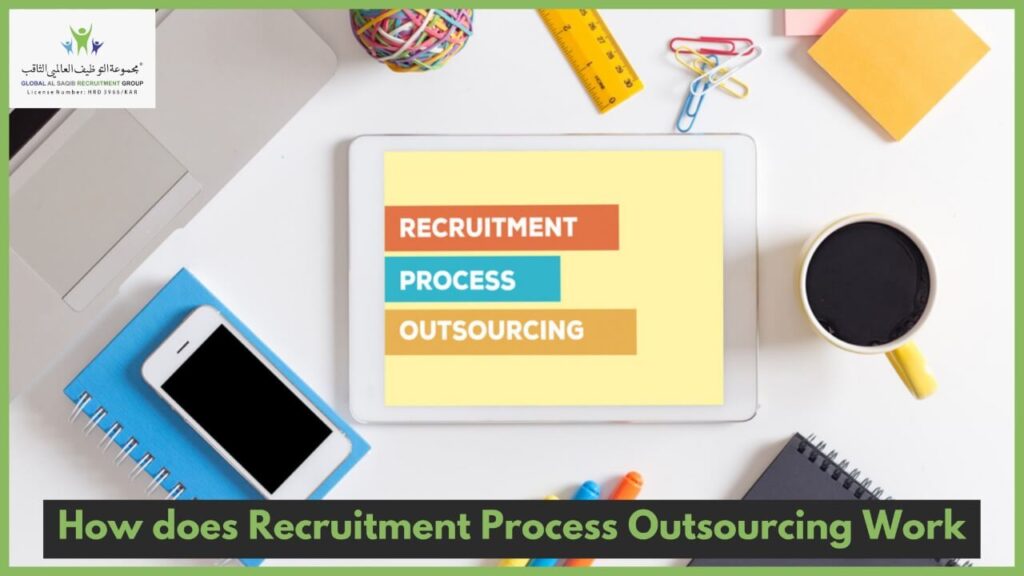What is RPO (Recruitment Process Outsourcing)?
Recruitment process outsourcing (RPO) involves an employer transferring all or part of the recruitment process of finding potential candidates over to a third-party service provider. It is an effective method that is designed to connect qualified candidates to a potential employer with minimal involvement of the company’s HR staff. It helps the employer drive cost, quality, efficiency, service, and scalability from RPO.
Recruitment process outsourcing is specifically used by medium and large-sized companies. It is often a popular choice for employers who are looking to acquire skilled talent in specialized or technical areas in their company.
An employer looking to fill open positions could hire and sign a contract with a recruitment process outsourcing firm, making it responsible to fetch, screen, and assess suitable candidates.
The competition in the labor market is fierce and it can be difficult to find qualified and potential employees from a swarm of candidates. Therefore, the procedure of finding the right and suitable candidate with the right skill sets can take weeks or months. The process of reviewing CVs, interviews, processing applications, and screening procedures can be very time-consuming and complicated for HR staff. Therefore, RPO frees HR staff to focus on their company’s internal tasks rather than spending time on recruitment procedures.
How does Recruitment Process Outsourcing work?

RPO solutions are designed to meet the needs of the clients and to ensure providing support and expertise at every stage of the talent acquisition lifecycle. RPO manages the entire manpower hiring lifecycle from the provision of workforce planning to sourcing, selection, assessment, management, and onboarding.
RPO services start with a recruitment process outsourcing agreement. This agreement states the scope of the project, timing, cost, etc. Then the HR management staff and the RPO service provider discuss the job requirement. They implement various recruiting methodologies and market the job opening through social media to engage the candidates.
RPO quality recruitment outsourcing transforms an organization’s recruitment process by infusing dedication, latest technologies, and streamlining hiring processes. Aligned to the company’s staffing requirement, RPO solutions identify, assess, shortlist, and onboard the best workforce and deploy the best interview techniques.
The recruitment process outsourcing team of experts employs rigorous testing methods, screening processes, and detailed assessments to find the right candidate. RPO is aware of the latest trends and techniques in hiring the best and top-notch talent for the job
Through streamlined processes and deep specialization, RPO solutions can drastically reduce cost-per-hire and time-to-hire rates. It provides fast workforce recruitment and access to the best talent. It improves reporting, and scalability, delivering you greater revenue return on investment.
What are the benefits of outsourcing recruitment?
Big Organizations outsource workforce recruitment services that help reduce the cost, save time, improve compliance and get better access to professional and more qualified candidates. The benefits of outsourcing talent acquisition include:
Globalization
A centralized RPO provider instead of multiple recruitment outposts can help companies achieve globalization. As organizations expand into other countries, it is essential to standardize sourcing, short-listing, interviewing, hiring, and onboarding processes.
Reduced recruitment costs and time
The process of sorting the applications of candidates is time-consuming and can be bothersome. Engaging with RPO can help you reduce recruitment time by 40 percent and deliver cost savings of more than 50% in a year.
High workforce Retention
RPO provides organizations with permanent, successful, and long-term, candidates after rigorous pre-screening and first-rate shortlisting. They deliver a qualified workforce keeping in view their requirements and expectations and provide the best possible candidates who demonstrate a proven work record with references. This way RPO help employers maximize their budget by improving productivity and retention.
Advanced technology
It is necessary for a company to keep track of the candidate’s status, communication between the employer and the recruiters, and the recruiting experience. Most RPO providers supply an ATS or software that supports their client’s existing technology so the company can keep track of all the hiring stages.
Decreased turnover
When recruiting and onboarding processes are up-to-date and streamlined, new employees tend to be more engaged and less likely to leave the organization.
Compliance support
RPO providers keep pace with changing regulations. This helps build automated compliance support for all stages of recruitment.
Access to a Diverse talent pool
RPO providers may have established partnerships with well-known companies and diverse organizations, networks, and colleges. They usually have a huge database of candidates that help employers receive underrepresented talent.
Difference between RPO and Typical Recruiting

An external recruiter working for an RPO firm has more or less similar operations to an internal recruiter, but there are some significant differences.
A few companies have large HR departments that consist of recruitment teams. Sometimes HR staff members are involved in other tasks besides recruitment and they might not have the time for long screening, hiring, and interviewing processes.
Whereas Recruitment process outsourcing firms like Global Al-saqib Recruitment Group has dedicated professionals who are full-time recruiters. They possess deep industry knowledge and the latest technology which they use to help reach hard-to-find candidates. An RPO firm is more likely to know how to market a job opening on websites or social media platforms in order to attract the right talent. It also has access to the latest tools and trends that can aid in the recruitment process, which in-house HR professionals may not be familiar with.

